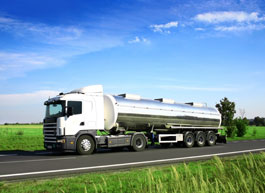Diesel fuel is refined from oil

Source: Stock photography (copyrighted)
Diesel fuel is used in the diesel engines found in most freight trucks, trains, buses, boats, and farm and construction vehicles. Some cars and small trucks also have diesel engines. Diesel fuel is used in diesel engine generators to generate electricity. Most remote villages in Alaska, and in other locations, use diesel generators to supply electricity. Many industrial facilities, large buildings, institutional facilities, hospitals, and electric utilities also have diesel generators for backup and emergency power supply.
Diesel fuel is a type of distillate fuel. On average, about 12 to 13 gallons of distillate are produced from each 42-gallon barrel of crude oil in U.S. refineries.
Before 2015, diesel fuel sold in the United States contained high quantities of sulfur. Sulfur in diesel fuel produces air pollution emissions that are harmful to human health. In 2006, the U.S. Environmental Protection Agency issued requirements for the reduction of the sulfur content of diesel fuel. The requirements phased in over time, beginning with diesel fuel sold for vehicles used on roadways and eventually covering all diesel fuel. All diesel fuel now sold in the United States must have a sulfur content of no more than 15 parts per million.




